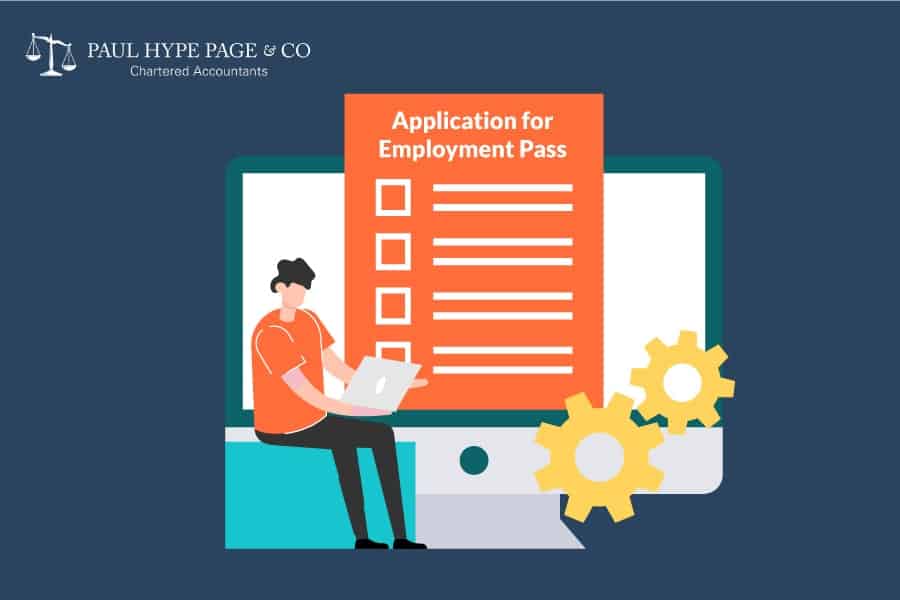Outline
Key Takeaways
Singapore remains one of Asia’s most desirable destinations for relocation. As of 2025, immigrants make up nearly 45 percent of Singapore’s population, reflecting its continued global appeal for professionals, investors, and families.
Whether you plan to relocate for work, investment, or lifestyle improvement, Singapore offers stability, safety, and a pro-business environment. This guide explains the major migration routes available — from permanent residency (PR) to employment and investment pathways — and how Paul Hype Page & Co. can assist you at every step.
Why is Singapore Attractive for Migration?
Singapore is widely recognised for its political stability, efficient infrastructure, and high quality of life. Migrating here means enjoying world-class education, a low crime rate, and a tax-efficient economy.
Beyond its lifestyle advantages, Singapore provides a strategic location for regional business expansion. Entrepreneurs, professionals, and investors can access Asia’s fast-growing markets while benefiting from transparent governance and solid legal protection.
Moving to Singapore for Lifestyle and Financial Planning
Foreigners are drawn to Singapore for both personal and financial reasons. Here are some of the key motivations:
1. Ease of Living
Compared with other Asian cities, Singapore offers an easy transition for expatriates.
- English is widely spoken, reducing language barriers.
- The public transport system is extensive, clean, and efficient.
- Necessities are low cost.
- The city provides a strong work culture balanced with leisure and family life.
- Affordable healthcare, good governance, and political stability is available.
2. Asset Protection
High-net-worth individuals often migrate to Singapore to safeguard assets through well-regulated structures such as trusts or special-purpose vehicles. Singapore’s financial system is globally trusted and offers a favourable tax regime, including tax-free import and sale of investment-grade precious metals.
3. Removal of Worldwide Tax Liability
Unlike the US or some European nations, Singapore does not tax foreign-sourced income remitted by residents. Many professionals relocate to Singapore to simplify their tax obligations and avoid double taxation on global income.
4. No Inheritance Tax
Singapore abolished inheritance tax in 2008. Foreigners migrating from countries with high estate-tax rates — such as the US, Japan, or France — often relocate here to preserve family wealth and ensure efficient succession planning.
Applying for Permanent Residency (PR) in Singapore
A Permanent Residency (PR) status provides long-term stability, enabling individuals to live, work, and study in Singapore indefinitely.
1. Eligibility for PR
You may apply for PR through one of the following channels:
- Family ties (spouse, parent, or child of a Singapore citizen or PR)
- Employment route (Employment Pass (EP) or S Pass Holder)
- Student route (studying full-time in Singapore)
- Investment route (foreign investor in Singapore through Global Investor Programme (GIP)
2. PR Evaluation Criteria
Authorities assess your overall contribution and commitment to Singapore. Key factors include:
- Career, experience, or work pass
- Education or specialisation
- Length of stay or local family
- Age or family profile
- Investments or economic contribution
- Others: Local community involvement, tax payment etc
3. Important Documents for EP or S Pass Holders
- Testimonials from previous employer(s)
- Supporting documents for local involvements
- Details of salary breakdown (basic, overtime, allowances)
- Spouse and child(ren) documents (if applicable)
Alternative Routes for Migration to Singapore
Not every applicant qualifies for PR immediately. Singapore also offers alternative migration pathways such as:
- high value investment migration through Global Investor Programme (GIP)
- investment-entrepreneurship migration through EntrePass (Investors)
- skilled-entrepreneurship migration through EP
|
Global Investor Programme (GIP) |
EntrePass (Investors) |
Employment Pass (EP) |
|
|---|---|---|---|
| Governing Authority | Enterprise Singapore | Enterprise Singapore and Ministry of Manpower | Ministry of Manpower |
| Suitable for? | Ultra-high net worth business owners and family offices | Foreign investors establishing or funding Singaporee start-ups | Skilled professionals or business owners expanding to Singapore |
| Key Requirement |
|
|
|
| Investment Amount/Capital | Minimum S$2.5 million investment | Recommended ≥ S$1 million | Equivalent to 12 months of declared salary |
| Timeline | 2 years to PR:
|
|
2 to 3 years to PR:
|
Which Method is Suitable for Me to Migrate to Singapore?
Global Investor Programme (GIP)
The GIP is designed for established entrepreneurs seeking to invest substantially in Singapore. Successful applicants and their families receive Permanent Resident status within approximately two years.
To qualify, you must:
- Demonstrate at least three years of entrepreneurial track record.
- Have a company with an annual turnover of at least S$200 million.
- Invest a minimum of S$2.5 million into a new business or GIP-approved fund.
The GIP provides one of the most direct routes to PR for ultra-high net worth individuals who wish to base their family offices or investment holdings in Singapore. We recommend the GIP if you meet the criteria.
EntrePass (Investors)
If you are a foreign entrepreneur planning to establish or invest in an innovative Singapore-registered company, the EntrePass may be ideal.
The EntrePass allows you to:
- Set up a business in tech, innovation, or venture capital fields.
- Reside in Singapore while managing your company.
- Bring dependants on Dependant’s Pass or Long-Term Visit Pass.
To qualify, your business must demonstrate innovation and scalability, supported by a credible business plan and sufficient capital. EntrePass holders must also meet renewal conditions, including direct contribution to local companies and hiring of local employees.
Compared with the Employment Pass, the EntrePass offers greater flexibility for investors who plan to manage funds or establish family offices.
Employment Pass (EP)
The Employment Pass (EP) remains the most common option for skilled professionals relocating to Singapore.
It suits you if you intend to:
- find a job in Singapore
- expand an existing overseas business into Singapore
- establish a new company in Singapore
EP holders can subsequently apply for PR after one year of residence. The EP offers flexibility for entrepreneurs who prefer an employment-based route rather than an investment-based one.
How Paul Hype Page & Co. Supports Your Migration
Migrating to Singapore requires careful preparation, accurate documentation, and compliance with evolving immigration regulations. Paul Hype Page & Co. simplifies the process through tailored corporate and immigration services.
1. Presenting a Portfolio of Investment Options
We help you to identify the most suitable migration path — whether through the GIP, EntrePass, or EP.
2. Setting Up Investment Vehicles
Our team has extensive experience in setting up investment holding companies, single-family offices, and private limited companies. These investment vehicles can be registered under GIP, EntrePass, or EP routes to ensure successful migration to Singapore.
3. Assisting with Application Documentation
We help you prepare essential documents such as business plans, financial projections, letters of intent, and more. In addition, we have insights into what the authorities look for. The common areas of concern are:
- Is the business plan innovative, feasible or scalable?
- Does the company have enough funds to support the foreign employees?
- Are there potential business prospects in Singapore?
From PR to Singapore Citizenship
After holding Permanent Resident status for at least two years, you may apply for Singapore citizenship with the Immigration & Checkpoints Authority (ICA).
When evaluating applications, the ICA considers:
- Individual’s family ties to Singaporeans
- Economic contributions
- Qualifications
- Age
- Family profile
- Length of residency
Under the Enlistment Act, all male Singapore citizens and Permanent Residents (PRs), unless exempted, are required to serve National Service (NS). After active duty, men are required to serve Operationally Ready National Service (ORNS) up to 40 days per year until the age of 50 for officers and 40 for the other ranks.
Singapore citizenship applications usually take six to twelve months to process.
Conclusion
Relocating to Singapore offers vast opportunities but requires thoughtful planning. From vaccinations to work permits to housing and many other issues, each step contributes to a successful migration journey.
However, if you are considering to relocate for employment opportunities, setting up a company can be a pathway to migration. By registering a company and obtaining an Employment Pass, you can establish operations and reside in Singapore legally, providing you with a viable option if you are seeking to make Singapore your new home.
FAQs
Key steps include obtaining the necessary visas, registering the business, and complying with local laws and regulations.
Relocating a company to Singapore can be straightforward if you follow the correct incorporation procedures and seek professional advice.
The visas for foreigners in Singapore have different requirements. This is because every foreigner who enters Singapore will have different qualifications. Through these different visas, it becomes much easier for all foreigners who plan to migrate to Singapore to do so.
There are no restrictions on people of any nationality migrating to Singapore. Those who have fulfilled all of the necessary criteria may do so. This fact applies to people of all nationalities.
Singapore’s laws forbid dual citizenship. Therefore, one who plans to become a citizen of Singapore is first required to surrender any pre-existing citizenship.
Share This Story, Choose Your Platform!
Related Business Articles









How can i apply to work in Singapore and and yet i don’t have a job offer? Is there a way you can apply and come to find a job later? Or you must have a job to apply? Please let me know.
Hello Paul,
It is not possible to receive an Employment Pass before having a job offer in Singapore, as it is one of the criteria for receiving one. The others include working in a managerial, executive, or specialized job; earning at least S$3,600 every month; and having the requisite academic and career qualifications.
For further information on the Employment Pass, please contact us at any time. We will willingly answer any queries you might have.
Thank you for your question.
Paul
How can I apply for migration for Singapore. Please give me information.
Dear Costa,
You may use either an Employment Pass or S Pass to work in Singapore. As the requirements for each pass are different, you should select the pass which is more in line with your qualifications.
For Singapore Permanent Resident (PR) application, it is recommended that you work in Singapore for 2 to 3 year before the application.
We have an in house agent that specialist in Singapore work pass and Singapore PR application. Contact us when you are ready!
Thank you.
Paul
i am from Bangladesh.I want to Migrate to Singapore with my family.
Dear Mohammad Saimur Rahaman
Migrate to Singapore with family:
To migrate and have a PR, you first need to have a valid working pass (i.e., Employment or S pass), only then may you apply PR.
After 6 months of visa approval , you can login to ICA to apply for PR
Regards
Paul Hype Page
Hi,
I am a Sri Lankan, currently working in Saudi Arabia as a Supply Chain Manager. in fact i do have a plan to move Singapore to secure PR there. i have a MBA from Australia and have a managerial experience for more than 6 years and overall experience of 15 years.
appreciate if you could assist me through out the process and advise me the cost and the process.
thanks
Roshan.
Dear Roshan,
Having an employment pass for a yr or 2 in Singapore first will greatly increase your chances to apply for Singapore PR.
Do contact our PR specialist for more information.
Paul